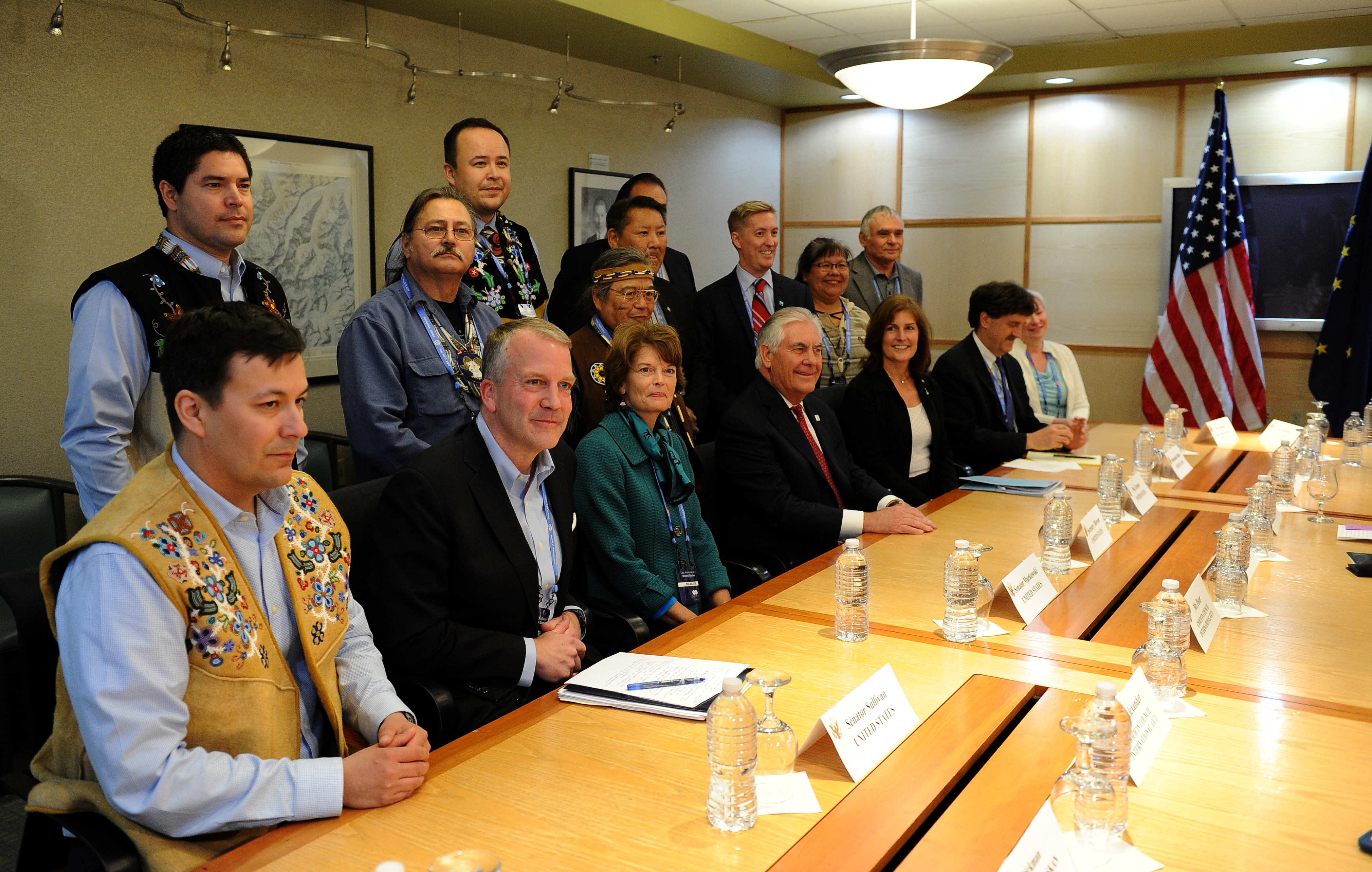US chairmanship may be over, but Alaskans will continue to keep the US active in the Arctic
The Institute of the North appreciates the work done by the Arctic Council during the U.S. Chairmanship and recognizes the high level of engagement that the U.S. applied during this period. It came at a crucial moment, as the eyes of the world turned north.
Alaska was able to participate actively during the U.S. Chairmanship through the leadership of Gov. Bill Walker and Lt. Gov. Byron Mallott, who convened the Alaska Arctic Council Host Committee. The Host Committee, for which the Institute of the North acted as Secretariat, provided education and hospitality events for visiting national and international Arctic Council delegates.
It is an honor to have served in this role, and in coordination with 75 high level and diverse Alaskans to have hosted more than 80 events during the U.S. chairmanship, attended by hundreds of visitors to the state and just recently during the Week of the Arctic, 1,000 attendees in both Fairbanks and Anchorage each. We want to thank Walker and Mallott for their foresight in organizing an innovative approach to advancing the state’s priorities during the U.S. chairmanship.

In terms of outcomes for Alaskans from the U.S. chairmanship, it is worth highlighting the work done by the Sustainable Development Working Group, which demonstrated an elevated interest in improving the economic and living conditions of the Arctic. Projects like the Arctic Remote Energy Network Academy, managed by UAF’s Alaska Center for Energy and Power, or the RISING SUN initiative that helped to better understand suicide prevention methods across the Arctic — these and others are connected strongly to Alaska interests as they work to address acute challenges. The Arctic Renewable Energy Atlas project, managed by Institute of the North, looks at the opportunities the state and other Arctic regions have to develop renewable energy resources and share best practices.
The Institute of the North is pleased to see the Fairbanks Declaration, which we think articulates some important points:
- Continued support for indigenous peoples, including the establishment of the Álgu Fund
- Marine shipping safety and security, including the establishment of the Arctic Marine Shipping Best Practice Information Forum
- The contributions of local authorities, which with the declaration signed by local mayors while in Fairbanks, provides a path for greater cooperation
- The critical role that energy plays in promoting sustainable development, including clean, affordable and reliable energy sources
- Commitment to cooperate with the Arctic Economic Council in inviting industry and business association subject matter experts to Arctic Council work.
The time for U.S. leadership in the Arctic is not over, nor will Alaska slow down its efforts to drive the U.S. agenda and respond to the needs of Alaskans, who represent heart of America’s Arctic.
The State of Alaska can approach this period at two levels. Alaskans know they face immediate and critical threats to their living standards, public infrastructure, and food security. At the same time, and consistent with the state’s interest, the state can remain committed to a focus on economic development. With strategic partners in place in Alaska and across the Arctic, the Institute can play a significant role in advancing Alaska’s objectives. The Institute of the North is involved in three Arctic Council projects: the Arctic Renewable Energy Atlas, Arctic Energy Summit, and in hosting a workshop for the Comparative Analysis of EIA processes in the Arctic. The Institute remains the North American secretariat for the Northern Forum, will support the work of the Arctic Mayors Roundtable and the Alaska Arctic Economic Council.
These efforts meet Alaska’s needs first by managing risk and working toward opportunity; and they provide two opportunities for alignment, first with the international community where we can advance a broad and meaningful agenda, and secondly with the nation, where we can continue to advocate for responsible resource, infrastructure, community and economic development.
Yes, the U.S. Chairmanship of the Arctic Council is over. But Alaska’s leadership in the region continues. We look forward to seeing what great things we can accomplish during the Finnish Chairmanship and we know that Alaskans stand ready to support its success.
Nils Andreassen is executive director of the Institute of the North, an Alaska-based non-governmental organization that focuses on Arctic policy, Alaska resource and economic development, and strategic planning at a community, state, national and international level.
The views expressed here are the writer’s and are not necessarily endorsed by Arctic Now, which welcomes a broad range of viewpoints. To submit a piece for consideration, email commentary (at) arcticnow.com.